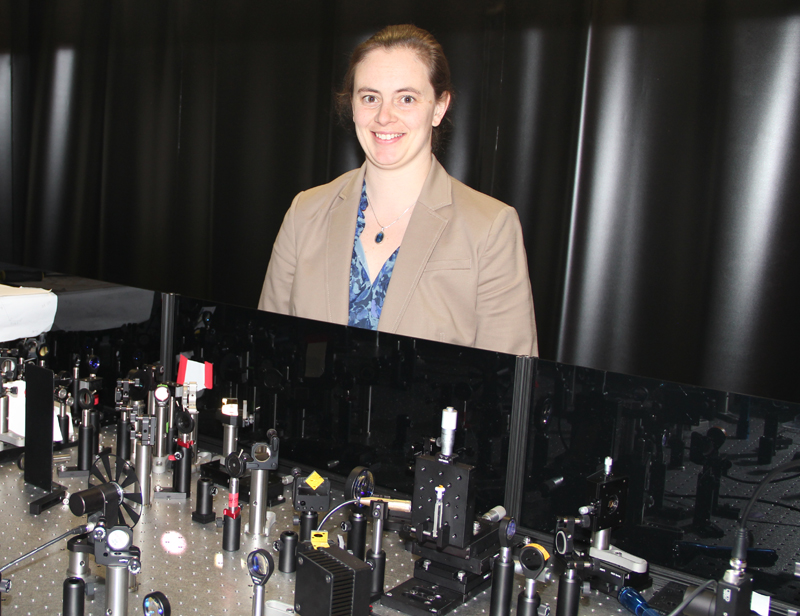

Main navigation | Main content
11/12/2015

Recent research from the research group of Professor
Assistant Professor Renee Frontiera has received a prestigious National Science Foundation (NSF) CAREER program award. The Faculty Early Career Development (CAREER) Program supports junior faculty who exemplify the role of teacher-scholars through outstanding research, excellent education, and the integration of education and research within the context of the mission of their organizations. Selection is based on innovative research at the frontiers of science and technology that is relevant to the mission of NSF; community service demonstrated through scientific leadership, education or community outreach.
Frontiera joined the Department of Chemistry faculty in 2013. She also has a graduate appointment in chemical physics. She was a post-doctoral fellow at Northwestern University before coming to the University of Minnesota. She earned her bachelor’s degrees in chemistry and Chinese from Carleton College and her doctorate at the University of California-Berkeley.
Her research encompasses investigating fundamental and applied issues in membrane protein biophysics, alternative energy sources, and nanotechnology. A goal is determining the effects of local environments on chemical reaction dynamics, from cellular membranes to photovoltaic devices to plasmonic nanomaterials. She is also developing and applying new spectroscopic and microscopic techniques to examine how molecules react, following their dynamics on the nanometer length scale with femtosecond time resolution.
With the CAREER award, Frontiera will develop and utilize a microscopic imaging technique capable of probing chemical structure on nanometer length scales. This research project is focused on the development of a super-resolution Raman imaging technique and its use in determining how nanoscale local environments affect the function of lipid membranes. Researchers will combine elements of stimulated emission depletion microscopy and femtosecond stimulated Raman spectroscopy to create a broadly useful technique capable of label-free, chemical imaging on nanometer length scales. Her research group will probe the response of model cellular membranes to pharmaceutical molecules, in order to understand how nanoscale variation affects function. This nanoscale imaging technique should be applicable in areas such as biomedicine, pharmaceutical and food safety, photovoltaic and photocatalytic device characterization, and materials science.
Student researchers will create tutorials designed to expose people to advanced concepts in spectroscopy and microscopy. Frontiera also plans to continue performing with Energy and U, a live outreach show focused on energy for about 10,000 elementary students annually, the majority of whom are from underrepresented groups in the sciences.